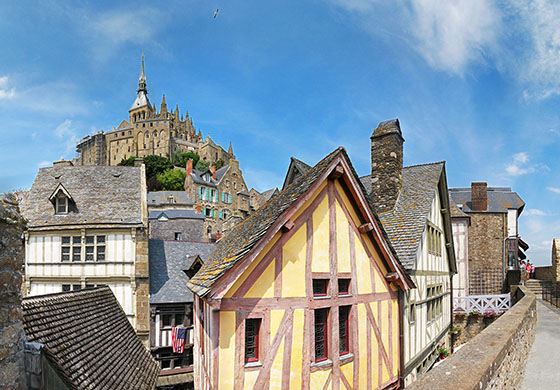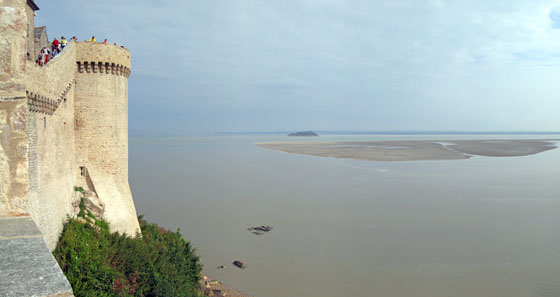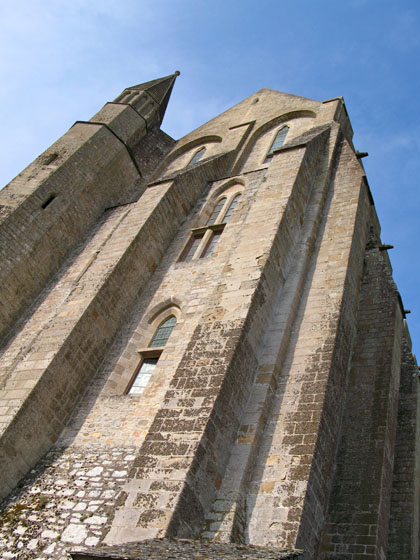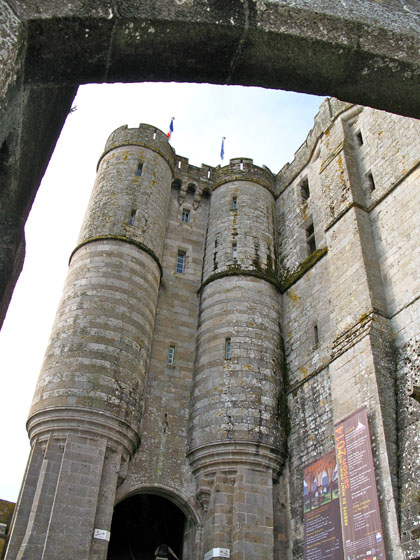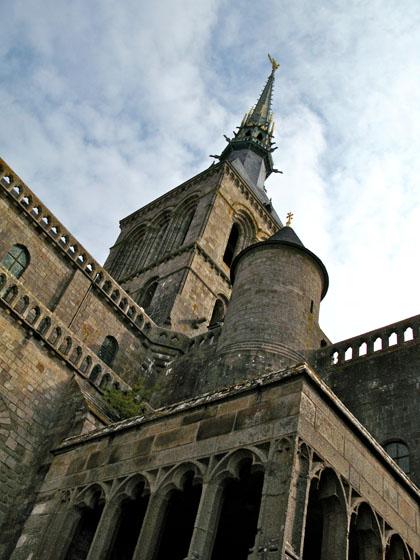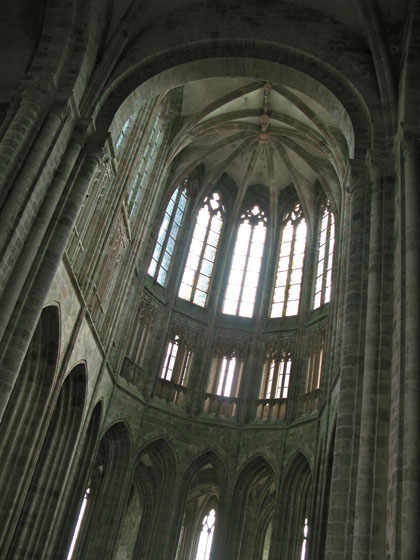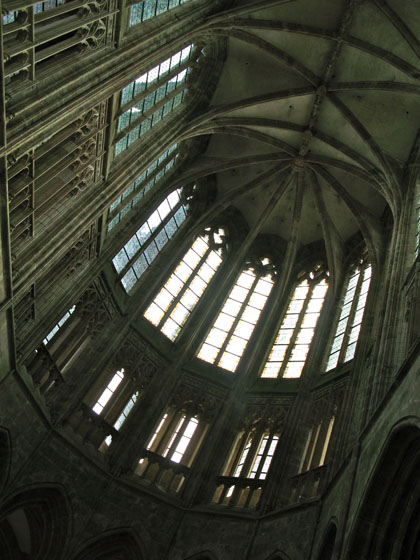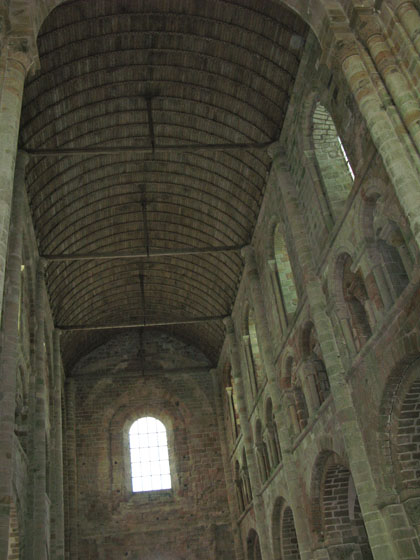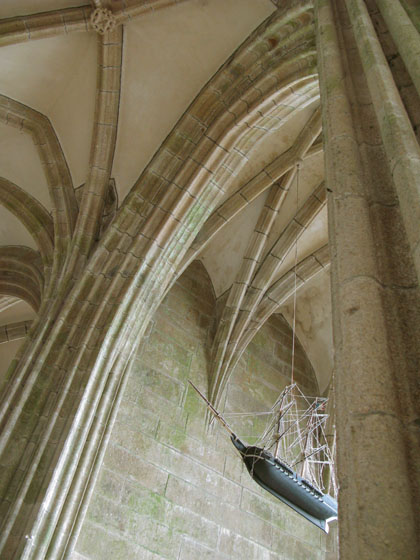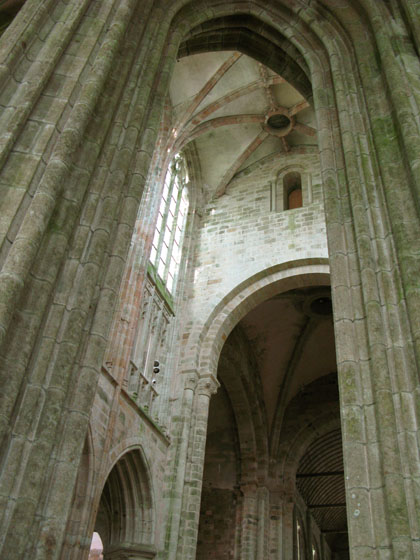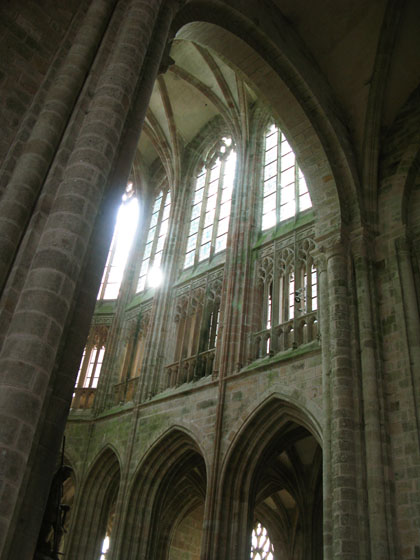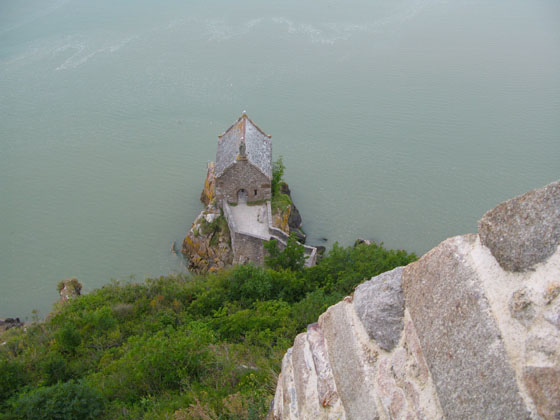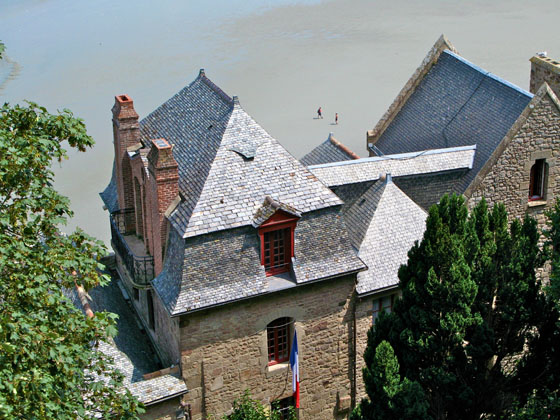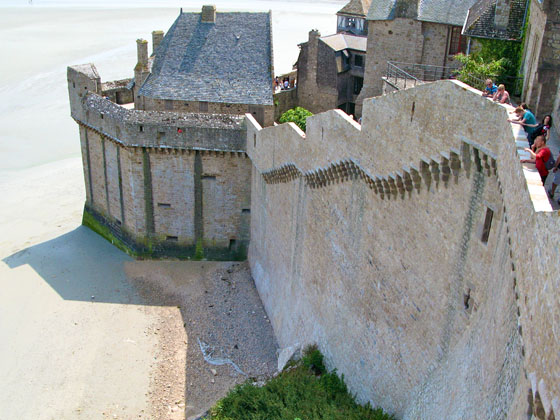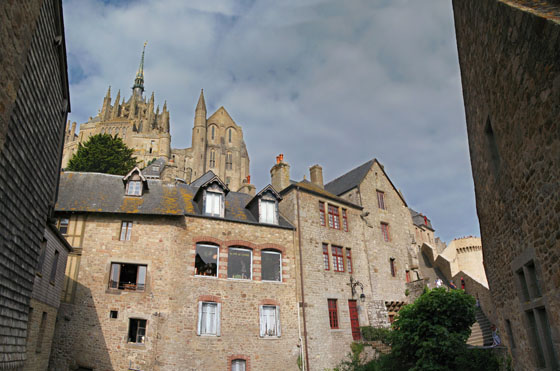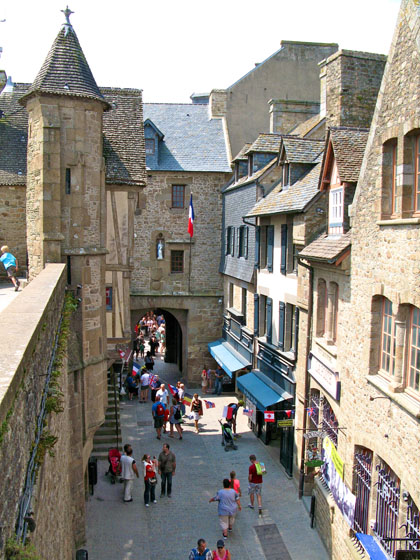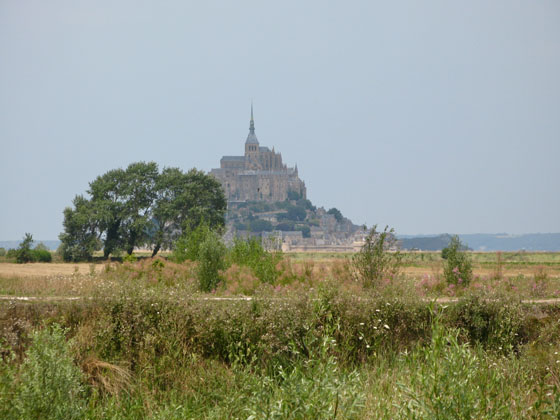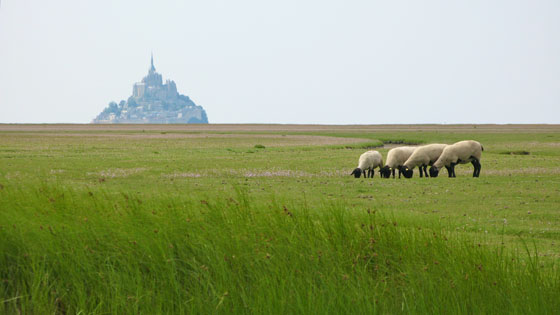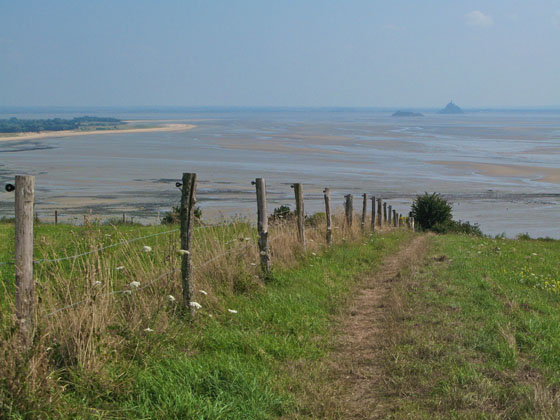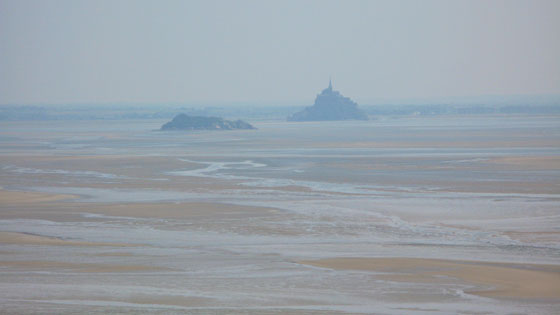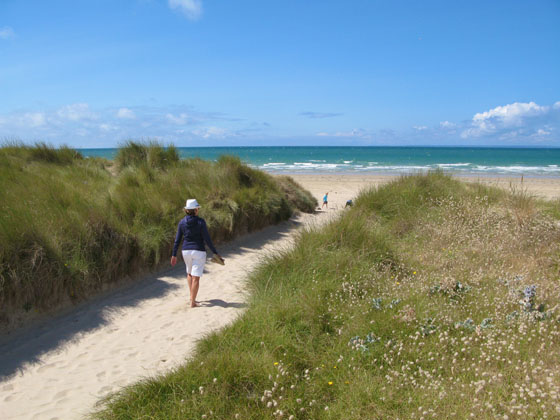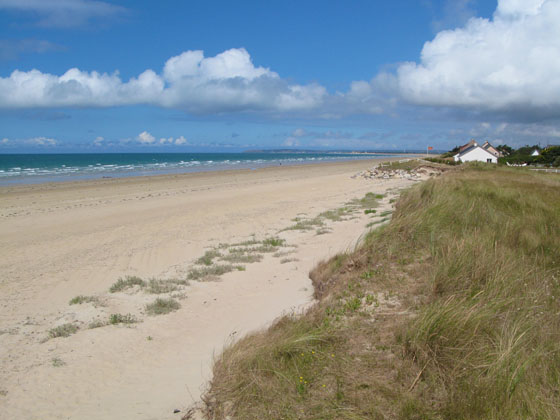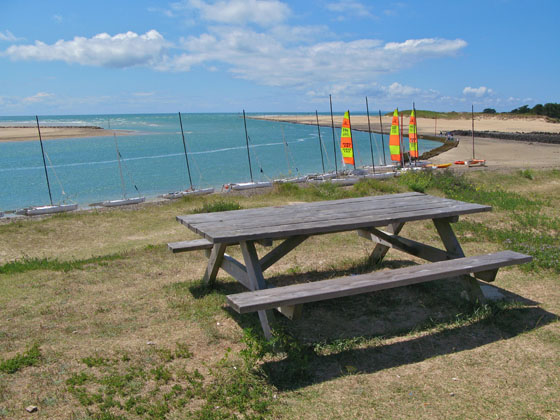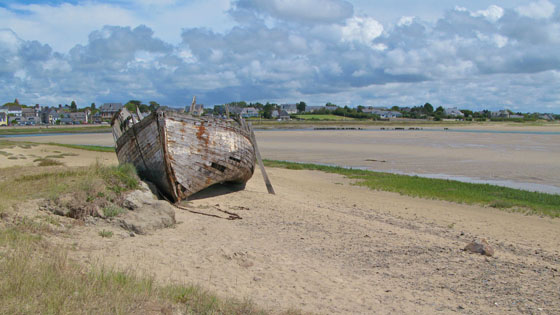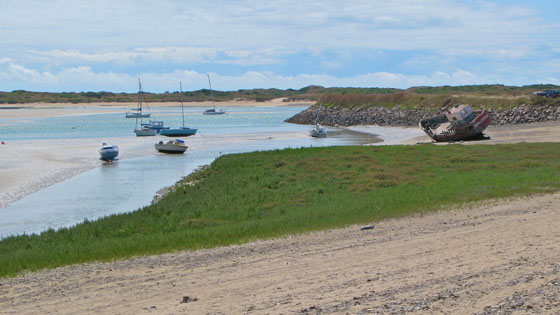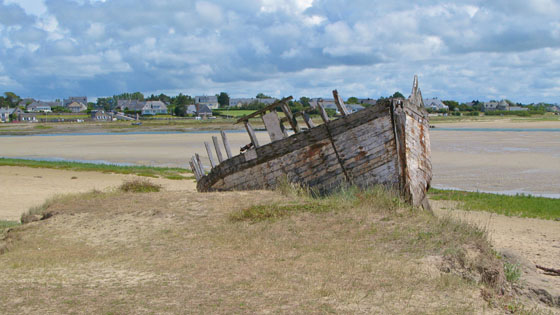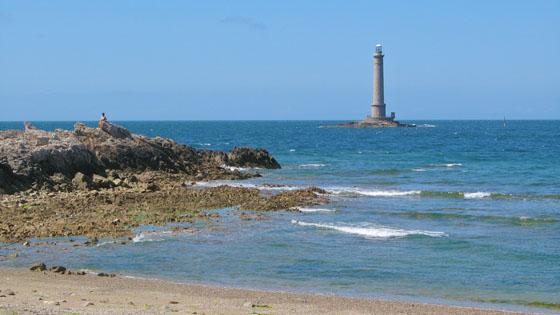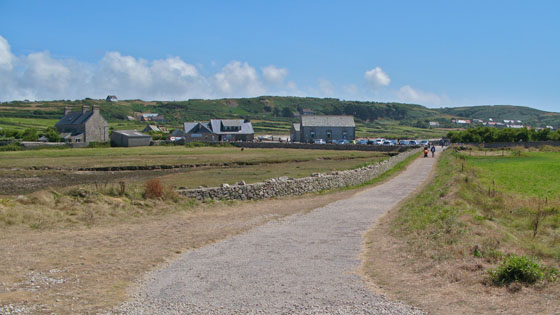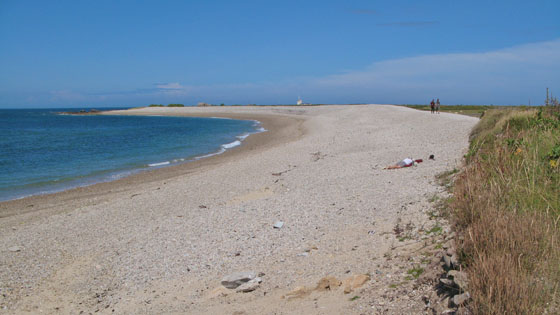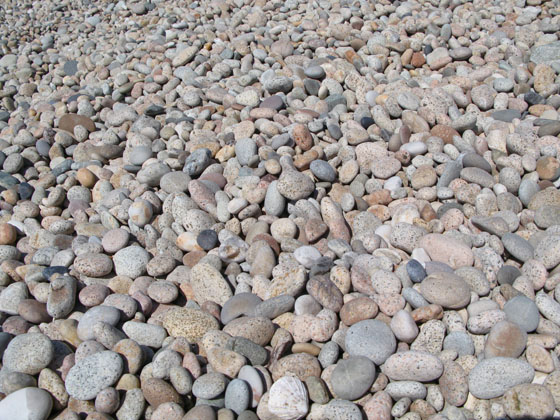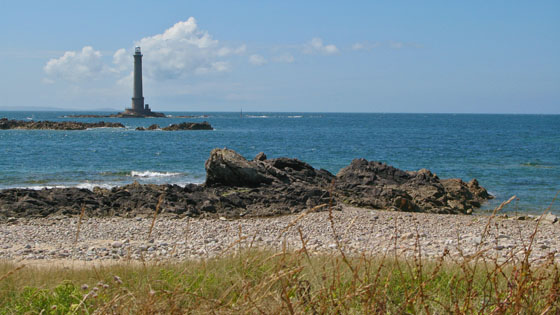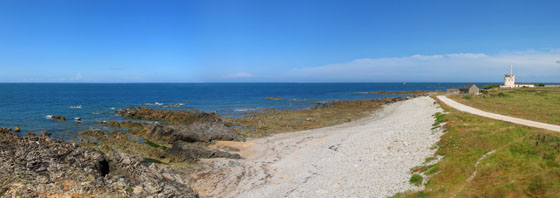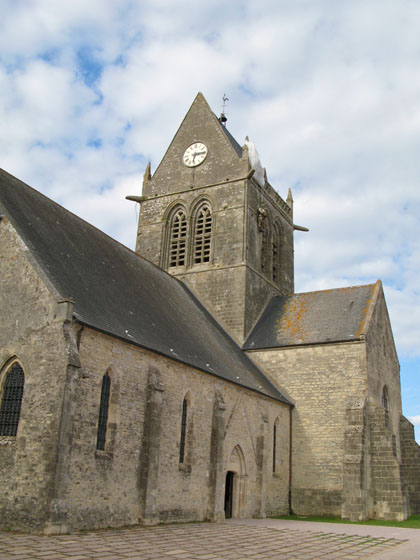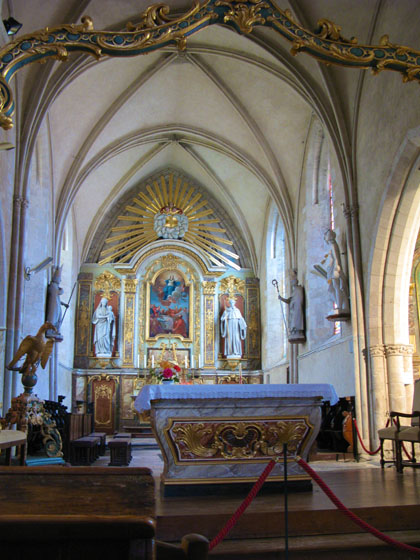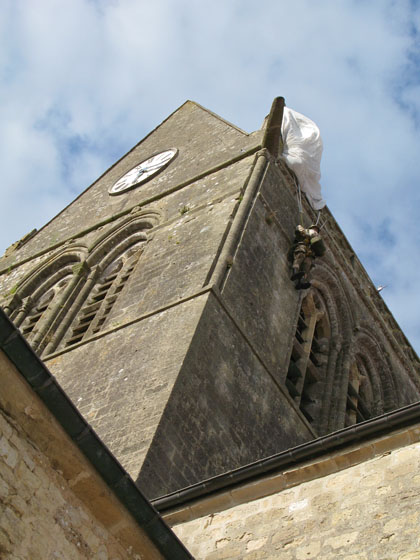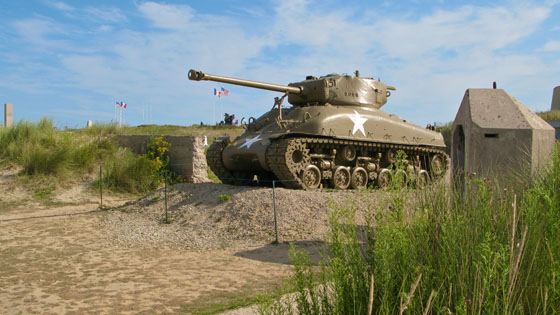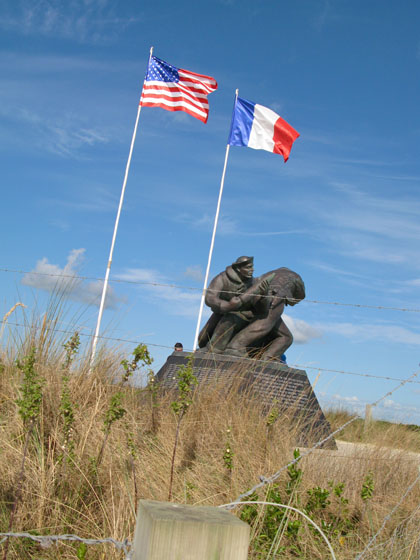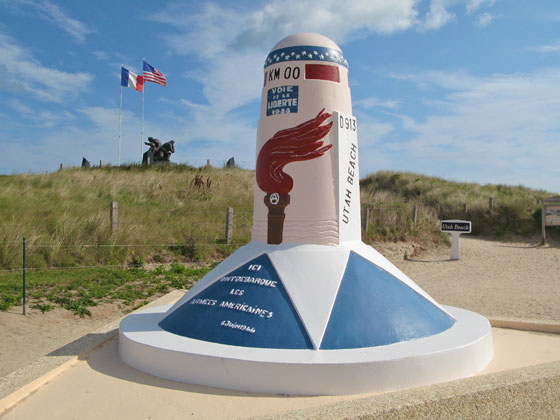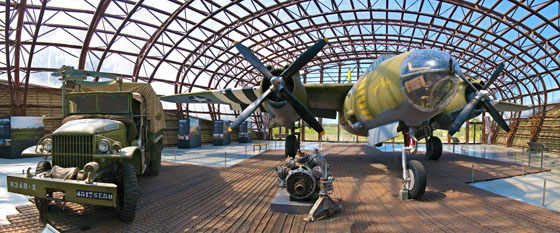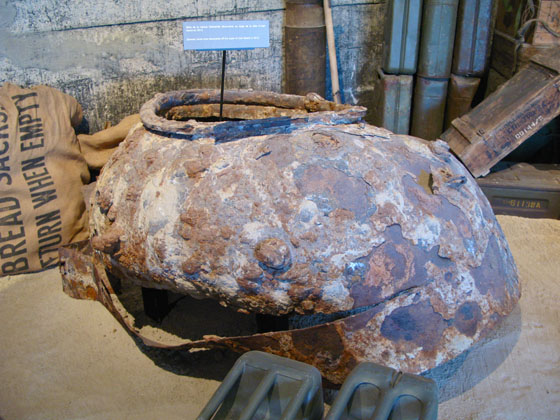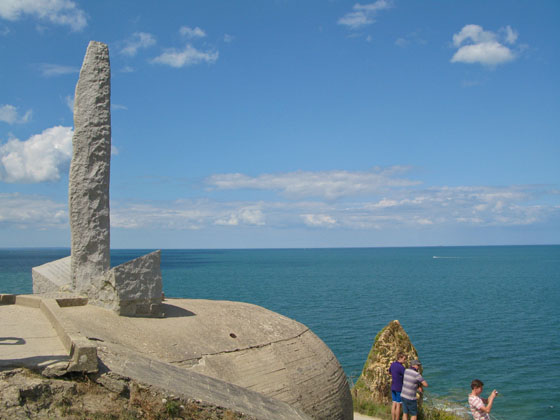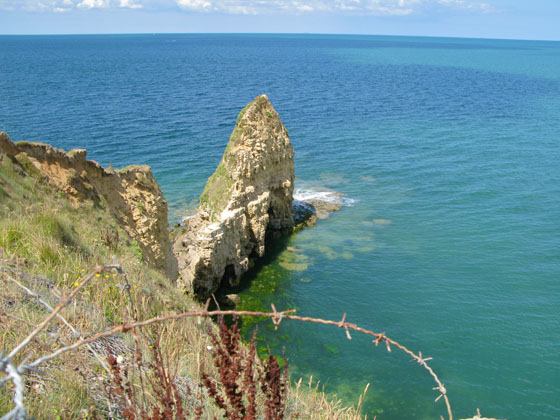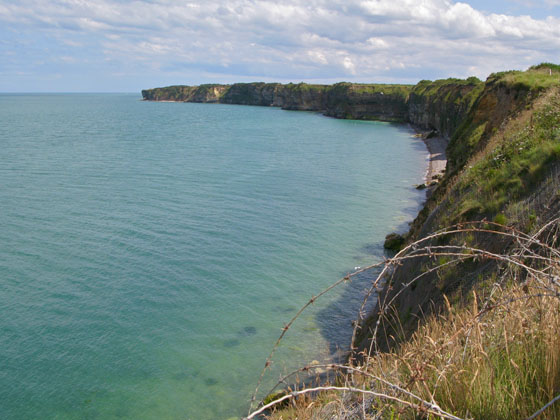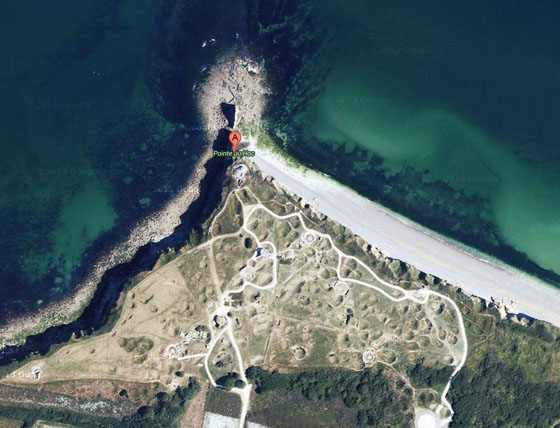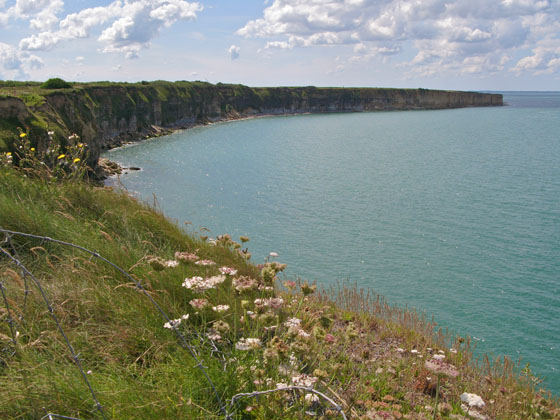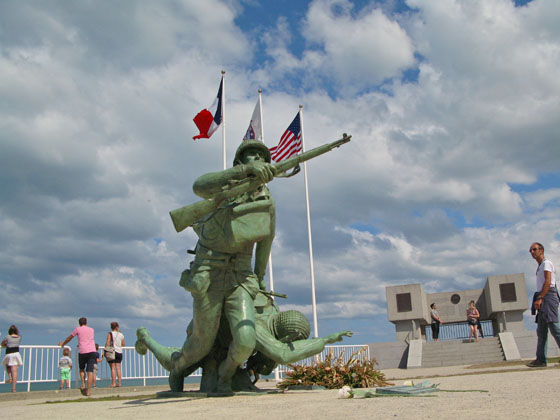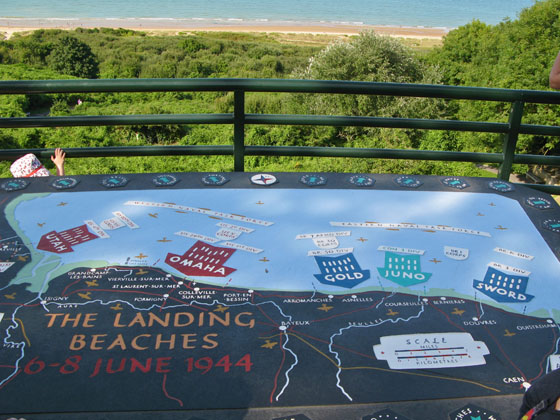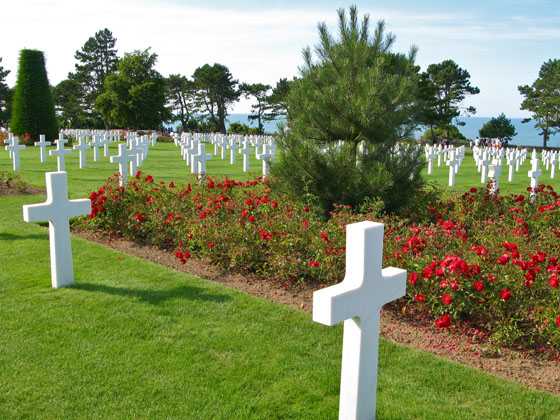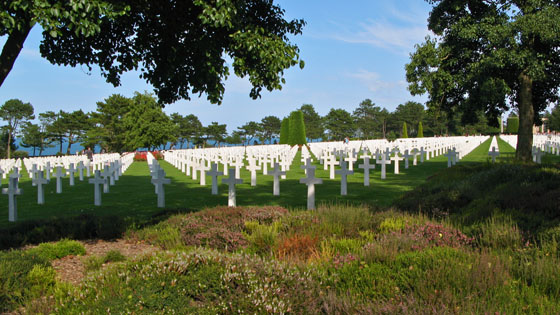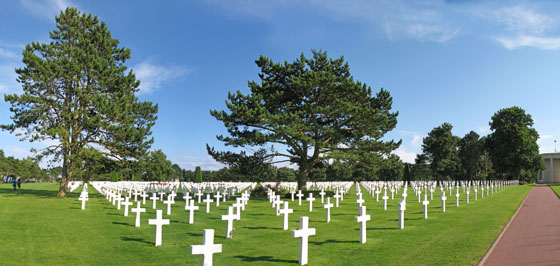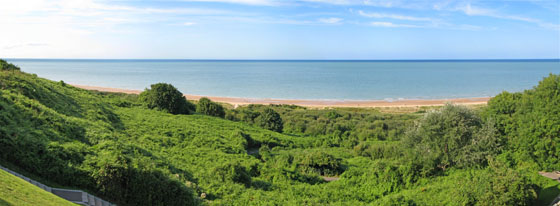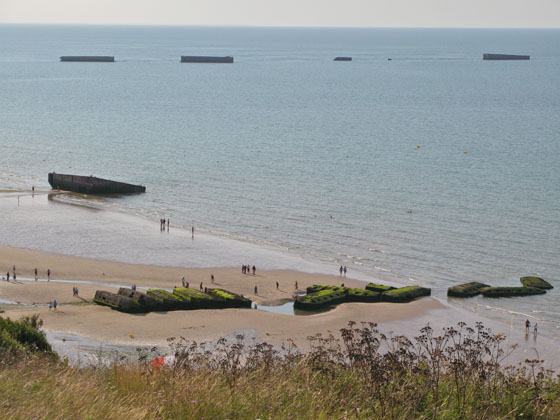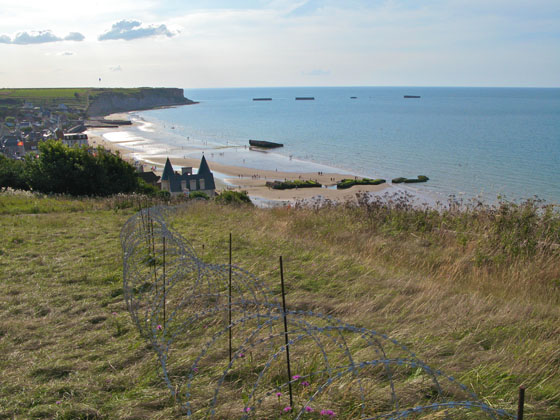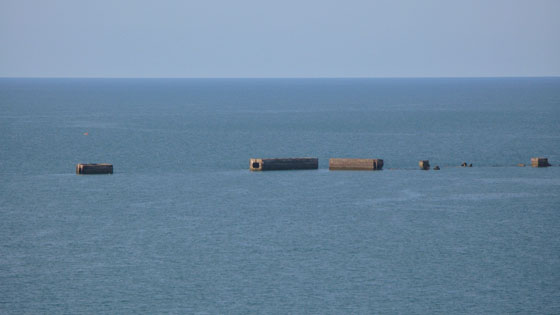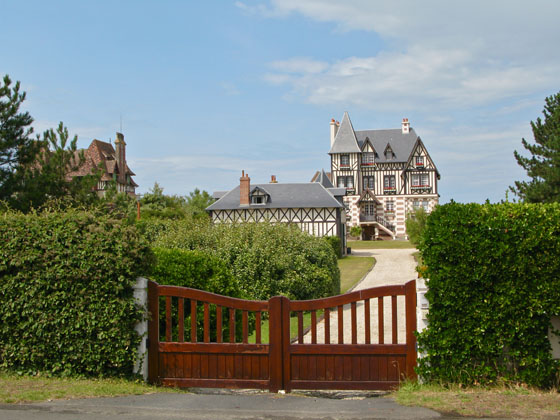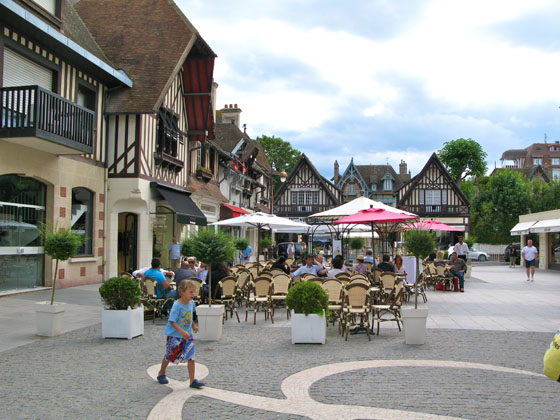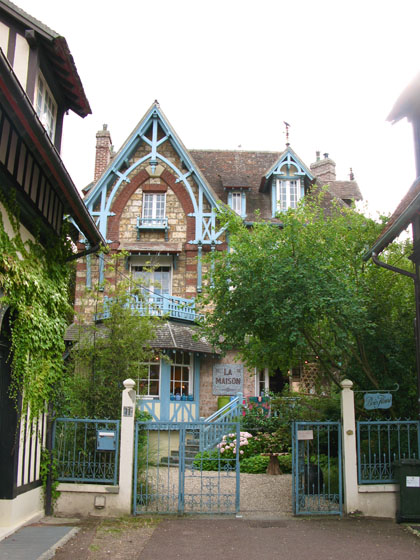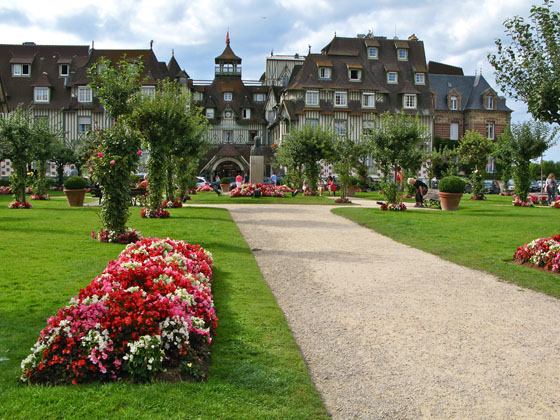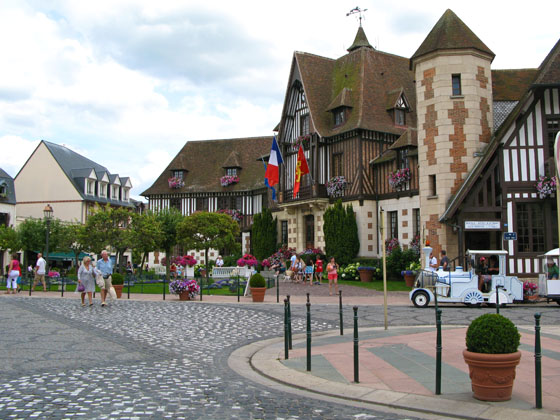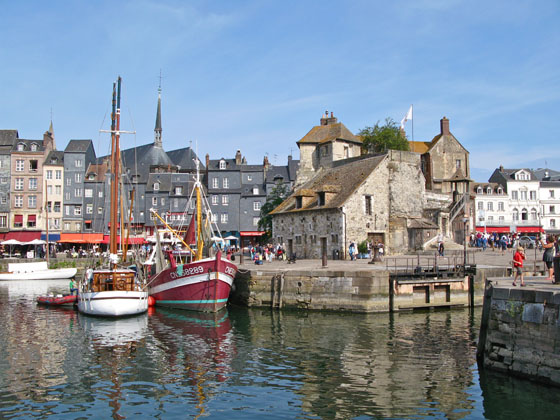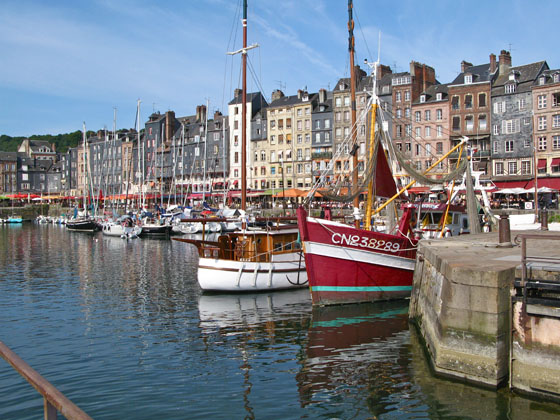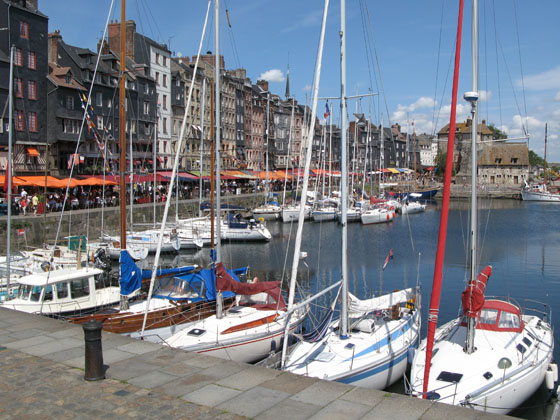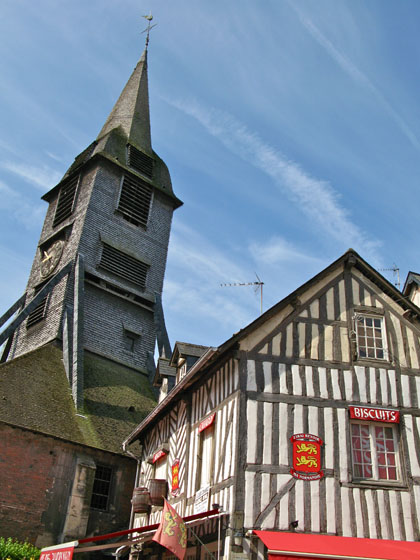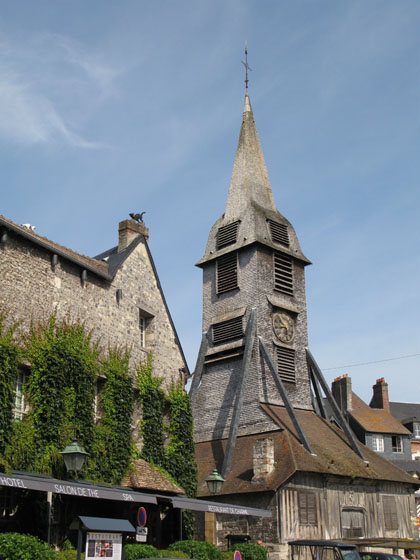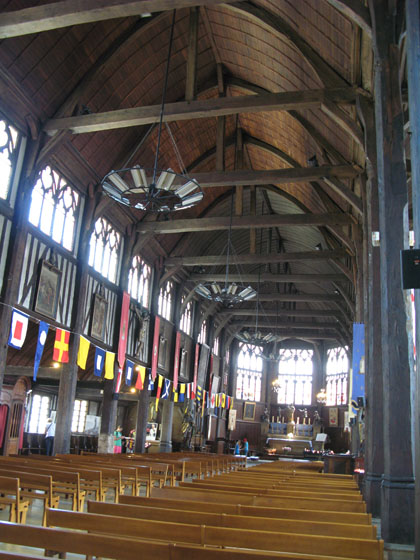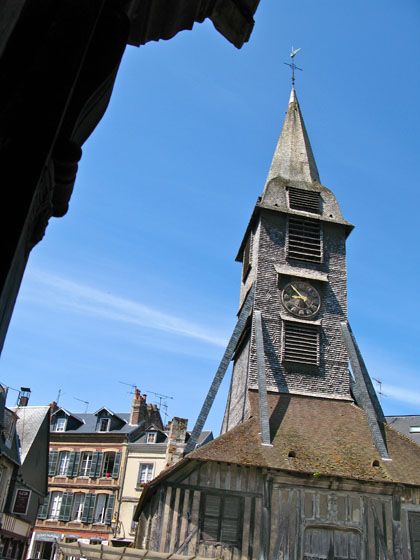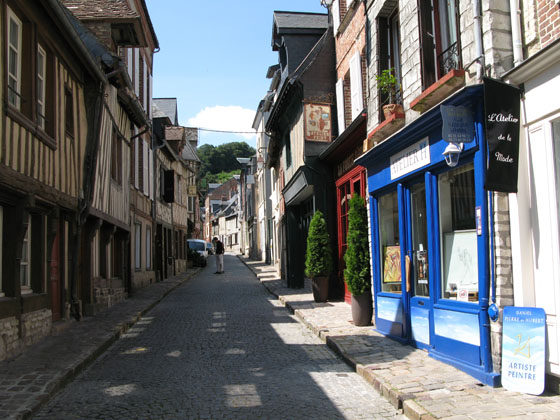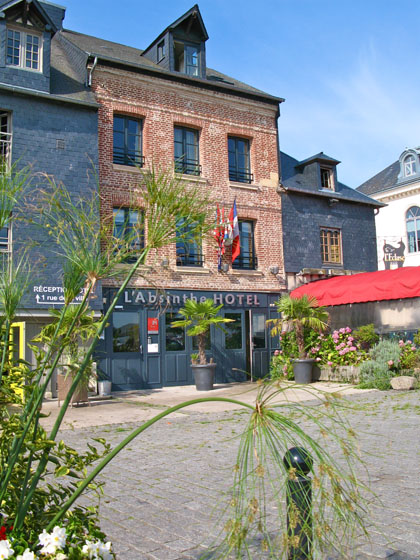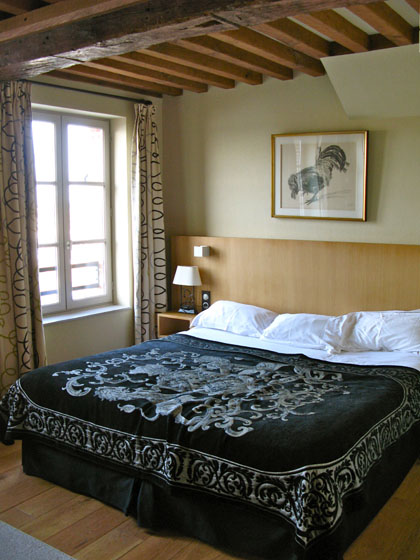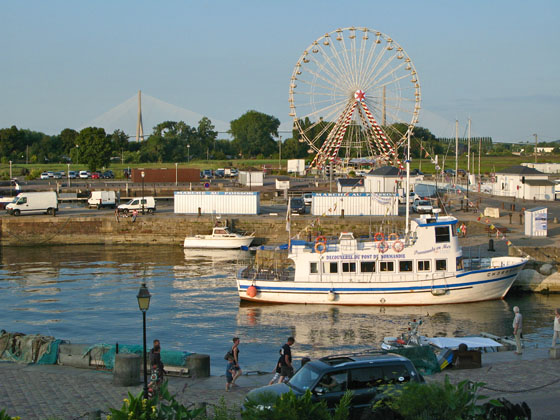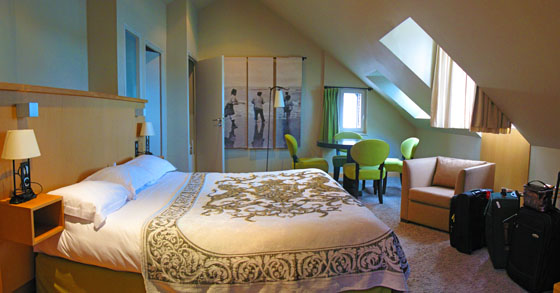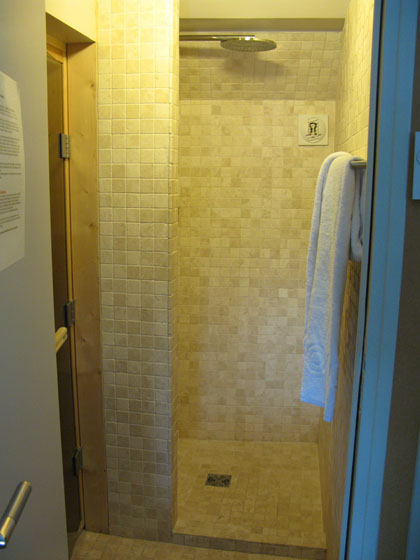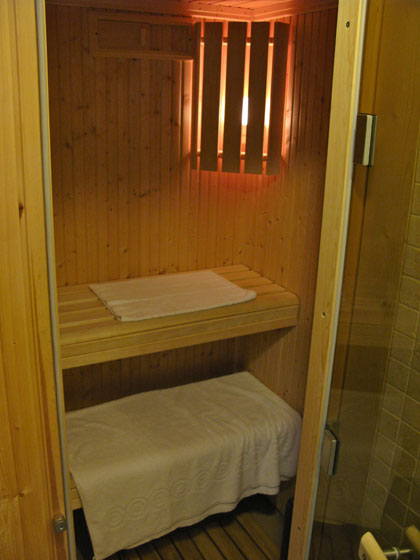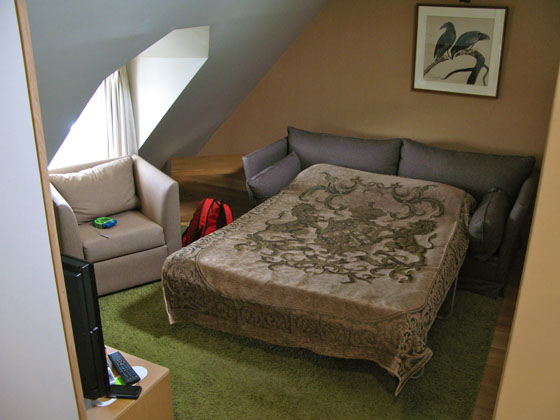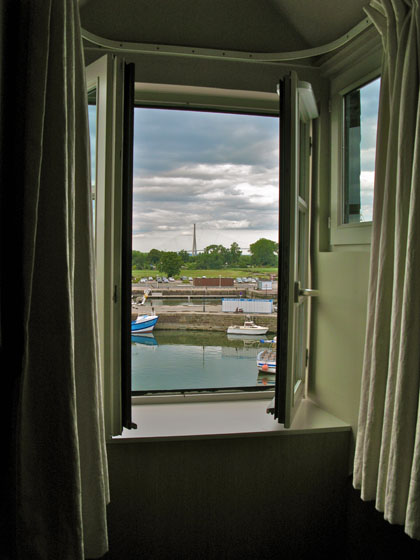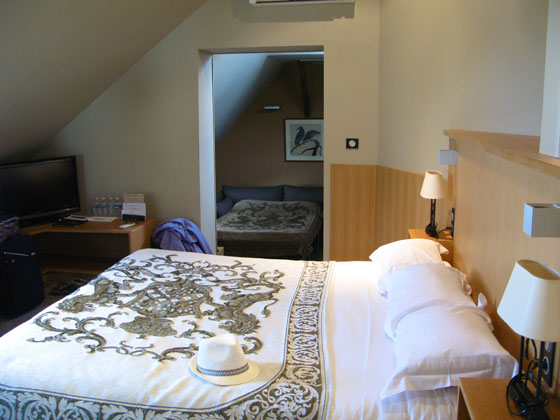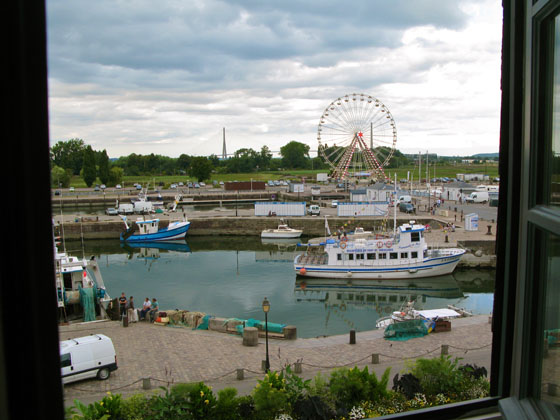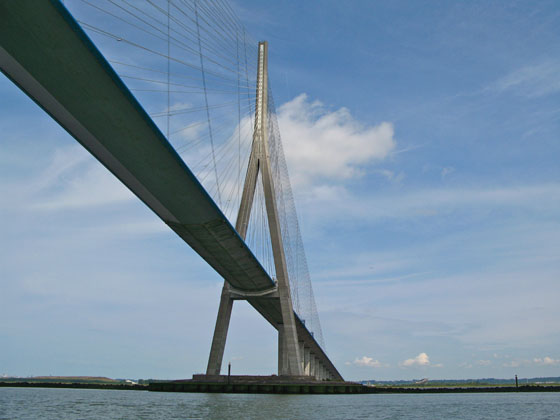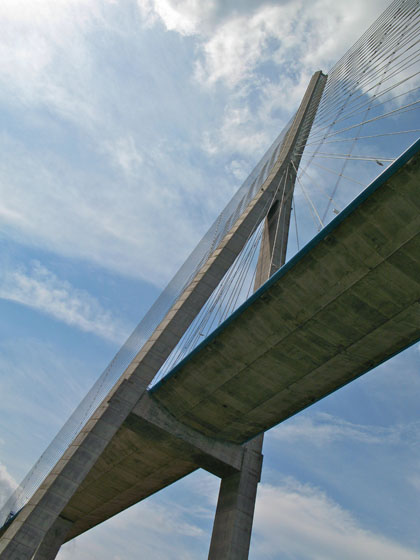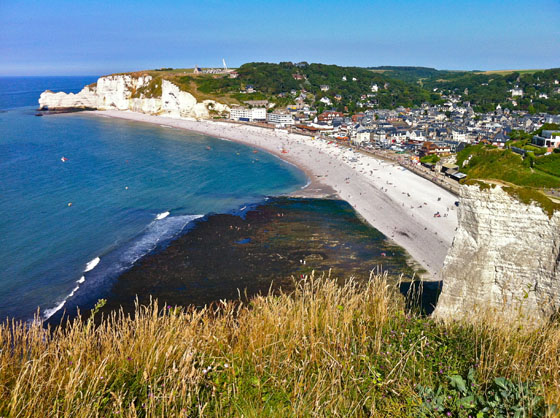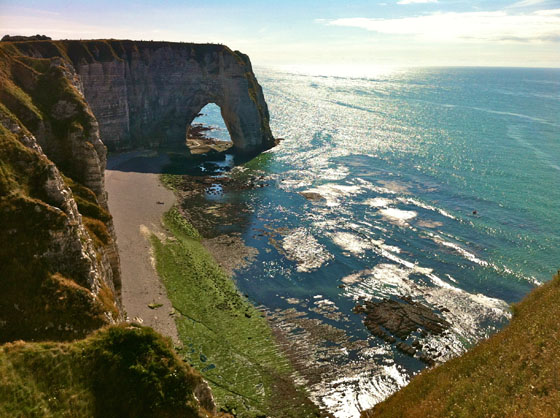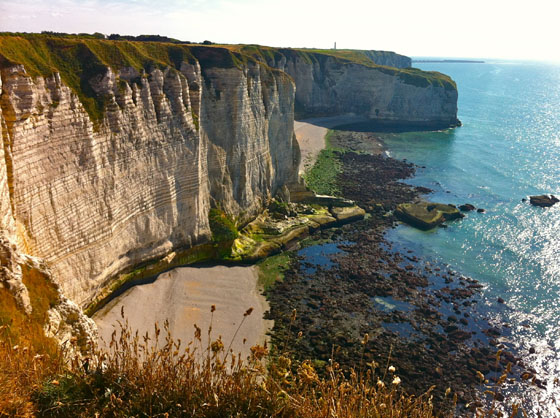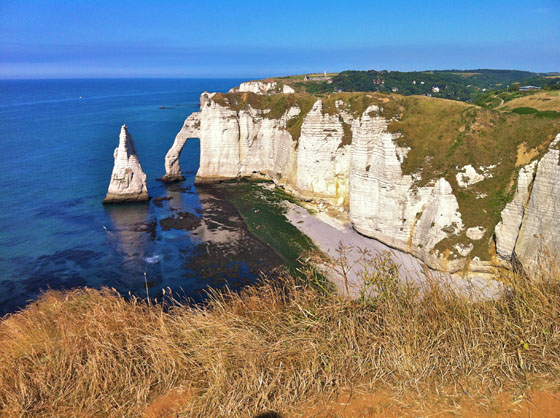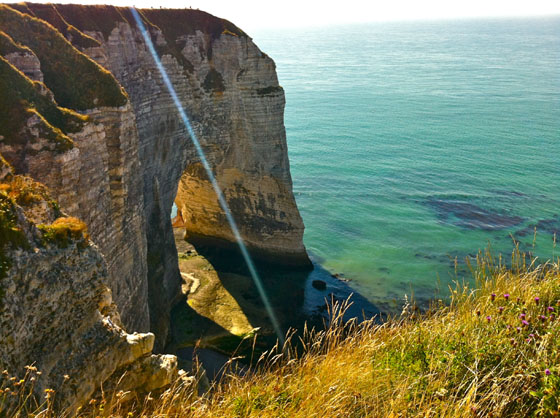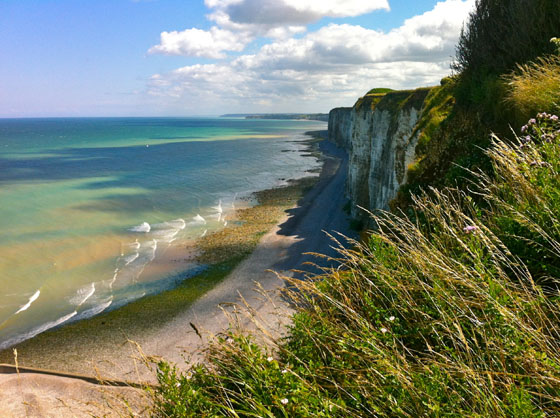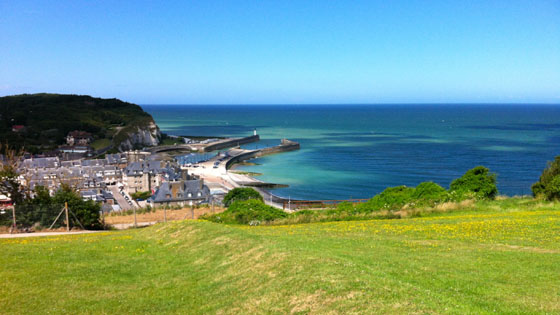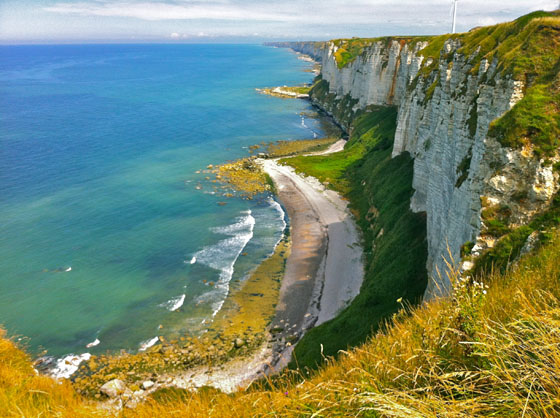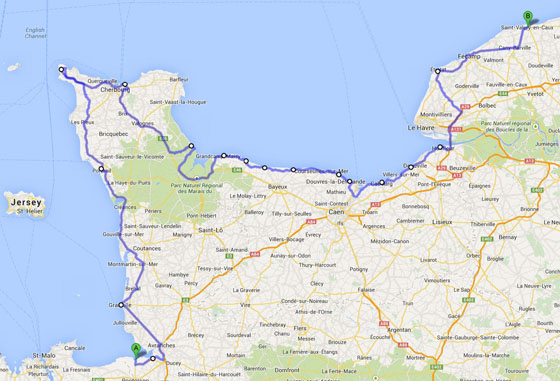Normandy, France
Location: Normandy, France
Date: August 2014
Duration: one week
Distance: 500 kilometers
Viewed: 15195 times
Comments: 0
Date: August 2014
Duration: one week
Distance: 500 kilometers
Viewed: 15195 times
Comments: 0
A week along the coast of Normandy, from Mont Saint-Michel, up to Cap de La Hague at the northwestern tip of the Cotentin peninsula, down to Sainte-Mère-Église and the beaches of the D-Day invasion where ongoing events celebrated the 70th Anniversary of the Battle of Normandy.
Then eastward towards Cabourg, Deauville, Honfleur, Pont de Normandie, and Etretat.
One of the original Marauders, also known as the Widowmaker because of its poor performances at low speed, which lead to many accidents during takeoff and landing.
293 of these B-26 planes accurately dropped their bombs on enemy targets a few hours before the invasion.
Pointe du Hoc is the highest point between Utah and Omaha beach. It was a German heavily fortified stronghold and was a major concern for the Allied Forces regarding the success of Operation Overlord.
On D-Day, a small group of american soldiers, the Ranger Assault Group, landed by sea at the foot of the cliffs, climbed the cliffs with ropes while under enemy fire, and managed to capture Pointe du Hoc and destroy the german guns.
A few hours earlier, the site had been heavily bombarded by the Allied Airforce. 70 years later, one can witness how seriously cratered Pointe du Hoc still is and how intense and violent the operation must have been.
It's viewed from the sky that it is particularly impressive. Below is the Google Maps image of Pointe du Hoc .
An artificial harbor was built in Arromanches with 600 000 tons of reinforced concrete caissons known as Phoenix breakwaters. They were towed accross the channel from England, and then sunk near the shore to build the structure of the artificial harbor made of 33 jetties and 15 kilometers of roadway.
Two and a half million men and 500 000 vehicles landed on this artificial military harbor during the ten months following the D-Day invasion, delivering 4 million tons of supply to the forces on the ground.
Cabourg is an artificial town invented in the mid nineteen century. It's pretty quiet and easy to visit on foot or on a bike thanks to its many bike lanes.
As someone said over there, 'Cabourg is about traditions. Deauville is more about People Magazine. Then, further away, Honfleur is also about traditions.'
Honfleur provides a sudden contrast with the artificial towns of Cabourg and Deauville.
Being a thousand years old, a long history has shaped its culture, its port, its houses and streets.
Many artists and painters have come or lived here.
The town is famous for its wooden church, the Church Saint-Catherine built right after the Hundred Years War. The original stone church had been destroyed, and with the limited resources left on site, the town inhabitants rebuilt it with the wood from the local forests.
Used to build boats, the builders were also only familiar with naval construction, hence the upside-down ship's hull structure of the nave.
The Absinthe Hotel is perfectly located, right onto the old port of Honfleur, a short walk away from the restaurants and shops.
It's a 3-star hotel and feels like it's underrated considering the quality and comfort of it all.
There are double doors to all rooms. The beds are excellent. It's perfectly insulated, cozy and very quiet.
The rooms are all very spacious, especially of course the top floor suite, room 12. Free wifi and bottled water are also good to mention.
At the reception the team is welcoming and very accommodating. Breakfasts are also excellent and generous.
Except for the area near Sainte-Mere-Eglise where some D-Day event at Utah Beach had all the hotels fully booked, it was fairly easy to follow the map of the trip below without making any hotel reservation ahead of time.
Mont Saint-Michel
Rising tide around the Mont Saint-Michel
The distant sandy island was drowned by the rising water in no time
The distant sandy island was drowned by the rising water in no time
Below the abbey
Entrance of the abbey
Gothic choir of the abbey connected to the older roman structure
The choir
A true masterpiece of Gothic art
A true masterpiece of Gothic art
The nave in Romanesque style
Gothic and Romanesque styles combined
A true architectural marvel
A true architectural marvel
The Mont Saint-Michel cloister
The Saint Aubert Chapel
Lots of American flags to celebrate the 70th Anniversary of D-Day and the Battle of Normandy
View from the parking area
At long last, cars were moved away from the bottom of the island in order to restore Mont Saint Michel’s maritime character
At long last, cars were moved away from the bottom of the island in order to restore Mont Saint Michel’s maritime character
Agneau de pré-salé is a lamb raised in these salt marsh meadows
The unique taste of their meat comes from the high salinity of the grass
Despite what one might think, the meat does not taste salty
The unique taste of their meat comes from the high salinity of the grass
Despite what one might think, the meat does not taste salty
View from near Champeaux
The flat land explains why the tide's speed is so visually impressive
The flat land explains why the tide's speed is so visually impressive
The Cotentin peninsula
Saint-Rémy-des-Landes
and its endless sandy and deserted beaches
and its endless sandy and deserted beaches
Entrance of the harbor of Portbail
The harbor of Portbail at low tide
Wreck of wooden trawler in the harbor of Portbail
Goury lighthouse at Cap de La Hague
built in 1837 at the northwestern tip of the Cotentin peninsula
built in 1837 at the northwestern tip of the Cotentin peninsula
Village of Goury near Auderville
This looks like a soft sand dune from afar
It's actually made of large and perfectly smooth granite pebbles
some as big as a melon
This accumulation of large pebbles gives an idea about what the sheer power of the winter storms must be like
some as big as a melon
This accumulation of large pebbles gives an idea about what the sheer power of the winter storms must be like
Semaphore of Auderville
The D-Day beaches and the Battle of Normandy
Sainte-Mère-Église
The church and its parachute memorial portrayed in the movie The Longest Day
The church and its parachute memorial portrayed in the movie The Longest Day
Inside the church of Sainte-Mère-Église
The parachute of paratrooper John Steele was caught on the church's roof
American Sherman tank on Utah Beach
U.S. Navy Memorial at Utah Beach
Milestone 00 of the Liberty Road at Utah Beach
Erected in 1947, it was the first monument to honor the Liberation of France
Erected in 1947, it was the first monument to honor the Liberation of France
Martin B-26 Marauder at the Utah Beach Museum
One of the original Marauders, also known as the Widowmaker because of its poor performances at low speed, which lead to many accidents during takeoff and landing.
293 of these B-26 planes accurately dropped their bombs on enemy targets a few hours before the invasion.
German mine discovered off the shore of Utah Beach in 2013
Pointe du Hoc American Monument
Pointe du Hoc cliffs
Pointe du Hoc is the highest point between Utah and Omaha beach. It was a German heavily fortified stronghold and was a major concern for the Allied Forces regarding the success of Operation Overlord.
On D-Day, a small group of american soldiers, the Ranger Assault Group, landed by sea at the foot of the cliffs, climbed the cliffs with ropes while under enemy fire, and managed to capture Pointe du Hoc and destroy the german guns.
A few hours earlier, the site had been heavily bombarded by the Allied Airforce. 70 years later, one can witness how seriously cratered Pointe du Hoc still is and how intense and violent the operation must have been.
It's viewed from the sky that it is particularly impressive. Below is the Google Maps image of Pointe du Hoc .
Bomb craters at Point du Hoc, 70 years after the facts
Omaha Beach
The landings beaches of Operation Overlord
American Cemetery at Omaha Beach
9,387 American military rest here in peace at the Normandy American Cemetery and Memorial
Covering an area of 70 Ha (172 acres), white crosses and graves bearing the Star of David, spread out as far as the eye can see
Omaha Beach viewed from the cemetery
Remains of the Mulberry harbor in Arromanches, built only 3 days after D-Day
Remains of the Mulberry B harbor, also known as Port Winston
A few remaining Phoenix breakwaters off the shore of Arromanches
An artificial harbor was built in Arromanches with 600 000 tons of reinforced concrete caissons known as Phoenix breakwaters. They were towed accross the channel from England, and then sunk near the shore to build the structure of the artificial harbor made of 33 jetties and 15 kilometers of roadway.
Two and a half million men and 500 000 vehicles landed on this artificial military harbor during the ten months following the D-Day invasion, delivering 4 million tons of supply to the forces on the ground.
Cabourg, Deauville, Honfleur
Houses near Cabourg
Cabourg is an artificial town invented in the mid nineteen century. It's pretty quiet and easy to visit on foot or on a bike thanks to its many bike lanes.
As someone said over there, 'Cabourg is about traditions. Deauville is more about People Magazine. Then, further away, Honfleur is also about traditions.'
In the streets of Deauville
A quite huge city by the sea with a crowded beach
Quite an interesting performance considering the huge dimensions of that beach
A quite huge city by the sea with a crowded beach
Quite an interesting performance considering the huge dimensions of that beach
Lots of casinos like this one in Deauville
The townhouse of Deauville
The old port of Honfleur
Honfleur provides a sudden contrast with the artificial towns of Cabourg and Deauville.
Being a thousand years old, a long history has shaped its culture, its port, its houses and streets.
Many artists and painters have come or lived here.
The town is famous for its wooden church, the Church Saint-Catherine built right after the Hundred Years War. The original stone church had been destroyed, and with the limited resources left on site, the town inhabitants rebuilt it with the wood from the local forests.
Used to build boats, the builders were also only familiar with naval construction, hence the upside-down ship's hull structure of the nave.
Bell tower of the Church Saint-Catherine
The bell tower was built away from the church to protect it in case of fire caused by a lightning strike
The upside-down ship's hull structure of the nave
The Absinthe Hotel
The Absinthe Hotel is perfectly located, right onto the old port of Honfleur, a short walk away from the restaurants and shops.
It's a 3-star hotel and feels like it's underrated considering the quality and comfort of it all.
There are double doors to all rooms. The beds are excellent. It's perfectly insulated, cozy and very quiet.
The rooms are all very spacious, especially of course the top floor suite, room 12. Free wifi and bottled water are also good to mention.
At the reception the team is welcoming and very accommodating. Breakfasts are also excellent and generous.
Room 11 at the Absinthe Hotel
View from the room onto the port and the Pont de Normandy in the distance
Room 12 at the Absinthe Hotel
It's actually a suite, the only room on the top floor of the hotel
It's actually a suite, the only room on the top floor of the hotel
The shower in room 12
It also has a separate bathroom with a whirlpool
It also has a separate bathroom with a whirlpool
Also a sauna next to the shower
The living room area has a sofa, which can be unfolded to accomodate 2 extra guests
Top-floor view on the port of Honfleur
Pont de Normandie
The white cliffs of Upper Normandy
Etretat
Natural arche of Etretat
100-meter high cliffs of Etretat
Cliffs near Saint-Valery-en-Caux
Saint-Valery-en-Caux
Except for the area near Sainte-Mere-Eglise where some D-Day event at Utah Beach had all the hotels fully booked, it was fairly easy to follow the map of the trip below without making any hotel reservation ahead of time.

